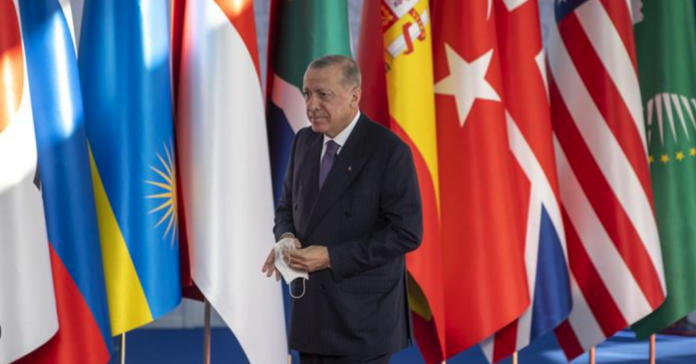Author: Kali Robinson (Bachelor’s degree in Journalism)
Affiliation: Council on Foreign Relations; former intern at Al-Jazeera
Organization/Publisher: Council on Foreign Relations
Date/Place: May 19, 2022/USA
Type of Literature: Article
Word Count: 2743
Link: https://www.cfr.org/backgrounder/turkeys-growing-foreign-policy-ambitions
Keywords: Türkiye, Anti-Turkism, Turkophobia, Independent Foreign Policy
Brief:
Türkiye has always been an important country due to its geographical position that includes the Middle East, Asia, and Europe. The author attempts to simplify an explanation of Türkiye’s comprehensive foreign policies and its assistance and activities in different regions. The author discusses the evolution of Türkiye’s foreign policy since the end of the Ottoman empire, which helps contextualize Türkiye’s foreign policy history, and why its position has always been important. NATO membership and its application to be an EU member have been main strengthening elements for Türkiye, especially since Türkiye is a Middle Eastern country. With Erdoğan’s continued leadership and the AK party’s popular support, policies have been more extensive and helpful to Türkiye’s neighbors; additionally, with the US and EU officially classifying the PKK as a terrorist organization, Kurdish terrorism has been dealt with more assertively. Türkiye’s policy of zero problems with all of its neighbors didn’t last long, as Türkiye’s own security concerns led to military interventions (for example in Syria), and it’s refugees policy has refused to ignore the violations of humanitarian rights (for example Greece’s illegal pushbacks of asylum seekers), which has brought Türkiye many problems. The author mentions Türkiye’s rejection of the military coup in Egypt, and how Türkiye instead supported the democratically elected Muslim Brotherhood in 2011, which has created tension between Türkiye and Egypt’s dictator Sisi along with his supporters like Saudi Arabia and the UAE. Türkiye has assumed that as a European country it has the right to be in the EU, but historically this hasn’t happened yet for several reasons, one of which is the EU’s racism against Turks and Muslims. Instead of accepting Türkiye as both culturally Islamic and a Democratic Republic, a tension that Europe itself isn’t over yet, the EU diverts attention away by accusing Türkiye as backsliding on democracy. Through Türkiye’s independent international relations, the US has been one of the countries that Türkiye has an off/on relationship with, depending on Washington’s situation de jure and interests. Türkiye has accordingly been expanding its relations with more reliable and geographically-closer countries, like Russia and China, which in the long term will benefit Türkiye and its position as a ‘global powerful state’. The article ends without a conclusion, but speculates as to possible changes leading up to the elections of 2023, acknowledging that the long-term consequences of Erdogan’s policy making “are difficult to discern at this stage”.
By: Sohaila Oraby, CIGA Research Intern




